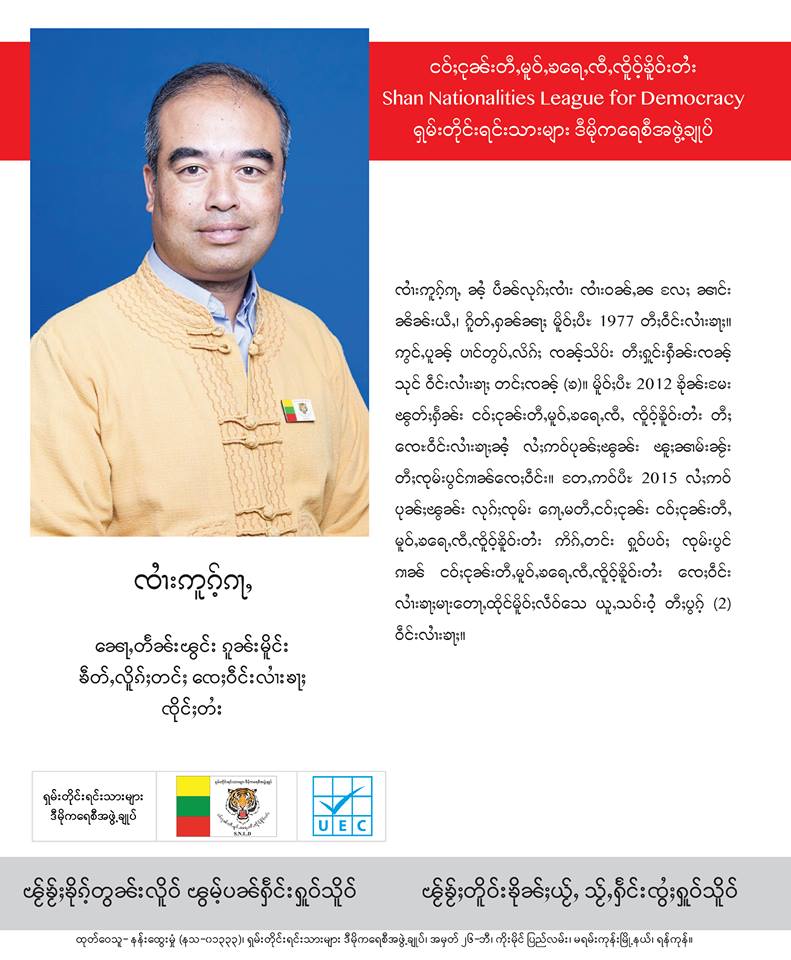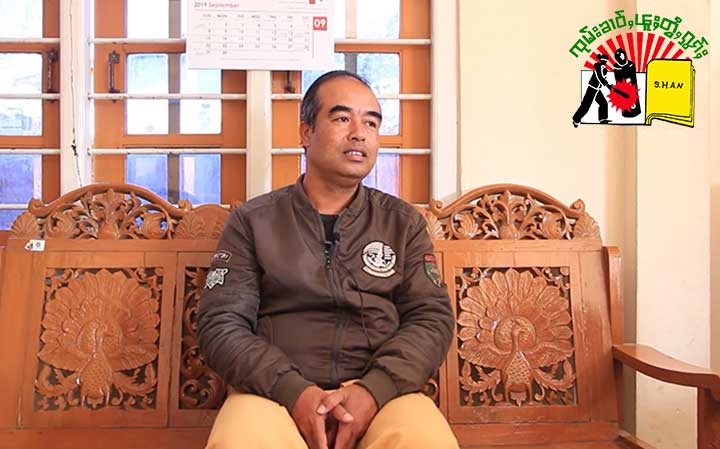The much awaited but less enthusiastic voters’ turnout of the by-election held on November 3 cast a long shadow on the ruling National League for Democracy (NLD) government, while the ethnic political parties (EPPs) gained ground, which could usher in a new political configuration, in the aftermath of 2020 nationwide elections, with new coalition formation different from the present setting.

Out of the recently contested 13 seats, for Pyithu Hluttaw, Amyotha Hluttaw and State/Regional Hluttaw, by-elections, the NLD won only 7 seats, far below its expectations of winning a resounding majority of the seats. The NLD won only 54 percent, while the rest went to the other parties.
The Union Solidarity and Development Party (USDP) came out second, winning three constituencies in Myitkyina 2, Tamu 2 and Seikkan 2, gathering 23 percent.
Chin League for Democracy (CLD) won in Matupi 1, Shan Nationalities League for Democracy (SNLD) won in Laikha and independent candidate Tin Maung Win won in Rathedaung 2, which also gathered 23 percent if the three ethnic party results are combined.
According to Myanmar Times, over 900,000 citizens were eligible to vote in the by-elections. The Union Election Commission (UEC) has not released official information about voter turnout but provisional figures received from township election commissions show that only five constituencies had voter turnouts of over 50 percent, the remaining eight constituencies registered an estimated turnout of between 30 percent and 40 percent.
Analysts reasoned that the low voter turnout may be due to the failure of the ruling party to implement its key promises like amending the 2008 military-drafted constitution and failure to achieve internal peace and the rule of law; the indifferent attitude of the NLD supporters, assuming that the by-elections would not bring much change in parliament and executive branch; and the poor performance of the UEC public awareness education concerning the importance of the by-elections.
Clearly, the NLD leadership’s worry could be detected when its spokesman Myo Nyunt said ahead of the UEC official announcement: “We lost five out of six seats in ethnic areas. Ethnic people are not satisfied with our performance on the peace process.”
“This result is a lesson for us. We will come up with a strategy for each constituency for the coming election,” he stressed to make his point.
Echoing Myo Nyunt, Zaw Myint Maung, Mandalay Chief Minister and also a senior NLD member, told journalists after unofficial results came out also said: “The by-election results are a lesson learn for us,” adding, “now I believe we can prepare for 2020.”

He said that the results showed the dwindling and declining support of the NLD in comparison to the 2015 elections and pointed out that eleven of the seats contested were previously held by the ruling party.
At the same time, SNLD spokesman Sai Leik rang an alarm bell saying that the continuation of democratization process would be only possible if the NLD and the ethnic forces could join hand, according to 7 Day Daily report.
He sent message to the NLD that the lessons learned from this by-elections showed, if the democratic elements cannot work hand-in-hand in the forthcoming 2020 election, other political cluster (meaning: the military bloc) could be victorious and regain power.
“In order to build a genuine union we democratic elements should work hand-in-hand, with fair give-and-take and transparency,” urged Sai Leik.
He added that so long as the ruling party is unable to draw up a precise, decisive policy on ethnic nationalities and convey it to the public, the worries of the ethnic political parties will go on unabated.
“If we would think in terms of the whole union, the SNLD cannot be neglected. Only by joining hand the march towards the aspired democratic political system will be possible. That is why, not only with the SNLD, the all embracing meeting and negotiation involving all ethnic nationality forces is necessary,” suggested and urged Sai Leik.
In turn, the NLD spokesman Myo Nyunt said that he accepted the SNLD overtures in principle and would convey the message to his leadership to ponder on it. A non-committal diplomatic gesture at best, one would say.
The otherwise smoothly conducted by-elections is tainted by a complaint regarding the practice of advance or early vote procedure in Kachin State, Myitkyina constituency.
Six candidates contested for the seat. The candidates for the ruling NLD and the Kachin Democratic Party (KDP) refused to sign Form 19 endorsing the declared winner, claiming the vote was not transparent.
Many locals were not happy with the results and questioned the transparency of the early voting, as the monitoring of polling stations inside military bases is heavily restricted. Reportedly, some 3,000 advance votes cast inside military bases went to the USDP.
The USDP candidate, Hsi Hu Dwe, officially received 23,186 votes and was declared the winner by the Union Election Commission (UEC) on Sunday. The KDP candidate received 19,112 votes, and the NLD candidate received 18,999.
The KDP candidate and party Chairman Gumgrawng Awng Hkam, who lost the election said he will file complaints with the UEC as he is allowed to do so within 45 days after the results are announced.
He said that his filing of complaint is not because he lost the race but to object that military personnel have the right to vote in general and by-elections even though the military is allotted with 25 percent appointed seats to all levels of the parliament according to the military-drafted Constitution.
“The electoral system needs to change and it won’t be fair so long as military personnel have voting privileges and also the right to sit in parliament,” he said.
The USDP won 3 constituencies with 23 % and EPPs equally winning 3 with the same percentage are becoming earnest contenders. As always, the politically quite aware Shan and Rakhine States were hard for the NLD and USDP to penetrate. The good showing of Kachin party which came out second in the contested Myitkina constituency ahead of the NLD and a clear-cut win of the Chin party are evidences of the political assertiveness of the non-Bamar EPPs. Further, the Mon and Karen parties’ fusion will no doubt gather more votes for the EPPs in 2020 election, as they are all determined now not to give the NLD a blank check like they did in 2015 election.
Thus, a new set of coalition-building with the EPPs could be in the pipeline for the NLD, with eyes fixed on the upcoming 2020 election. Equally, a coalition-building with the USDP could also be a possibility. It looks like the configuration of future political landscape will largely depend on the pattern of coalition-building, which in turn will determine whether the country will move forward with the democratization process or stay put in the mode of hybrid civilian-military rule.











Leave a Comments